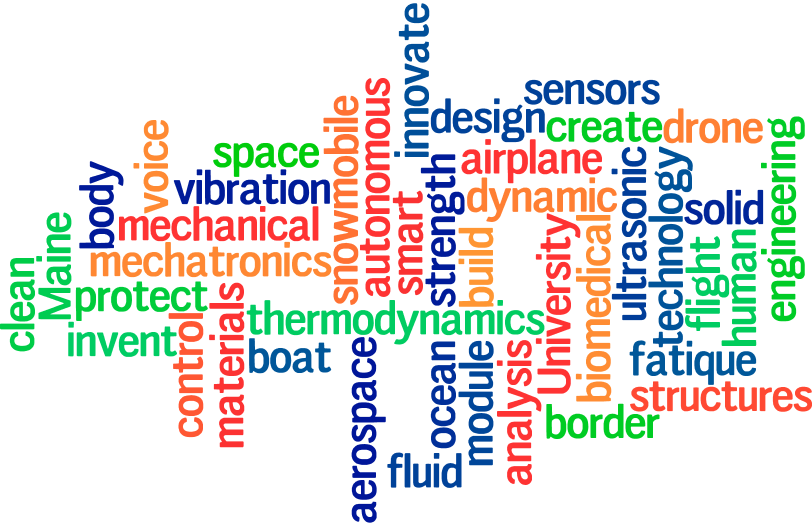What is Mechanical Engineering?
To put it simply, mechanical engineering deals with anything that moves, including the human body, a very complex machine. Mechanical engineers learn about materials, solid and fluid mechanics, thermodynamics, heat transfer, control, instrumentation, design, and manufacturing to understand mechanical systems.
The breadth of the mechanical engineering discipline allows students a variety of career options beyond some of the industries listed above. Regardless of the particular path they envision for themselves after they graduate, their education will have provided them with the creative thinking that allows them to design an exciting product or system, the analytical tools to achieve their design goals, the ability to overcome all constraints, and the teamwork needed to design, market, and produce a system. These valuable skills could also launch a career in medicine, law, consulting, management, banking, finance, and so on.
We invite you to explore how you might contribute to advancing the frontiers in the field of Mechanical Engineering.

Mechanical engineers work in industry, consulting practices, universities and governmental agencies. Many mechanical engineers are employed by equipment manufacturers, aerospace companies, shipbuilding firms, material processing plants, utilities, transportation companies, petroleum companies, and a host of other firms. Mechanical engineers work in the nuclear energy field on the design of underwater vessels, electrical power plants equipped with reactors, pressure piping, heat exchangers and other specialized components. Mechanical engineers working with government agencies conduct research on solar energy, advanced composite materials, radioactive waste removal, magnetic-levitation trains, and components associated with the space program.
